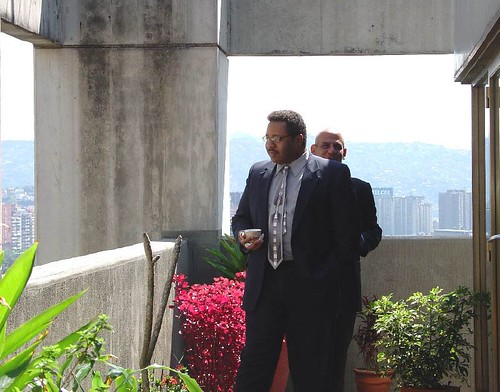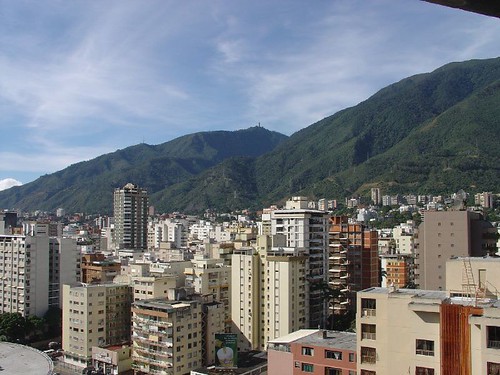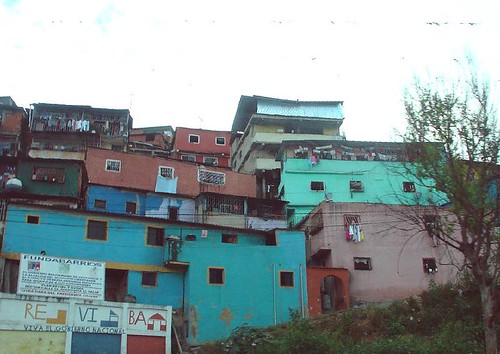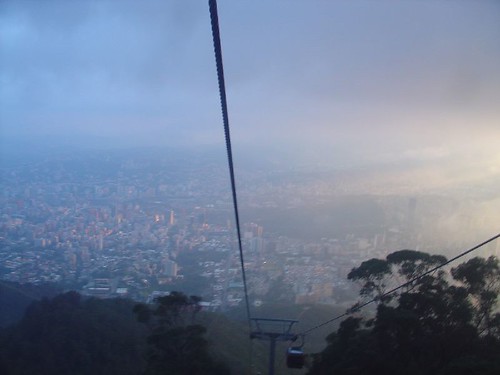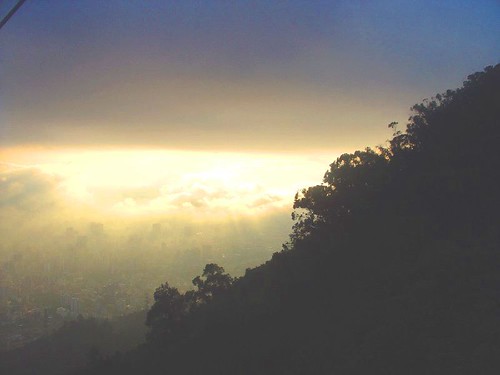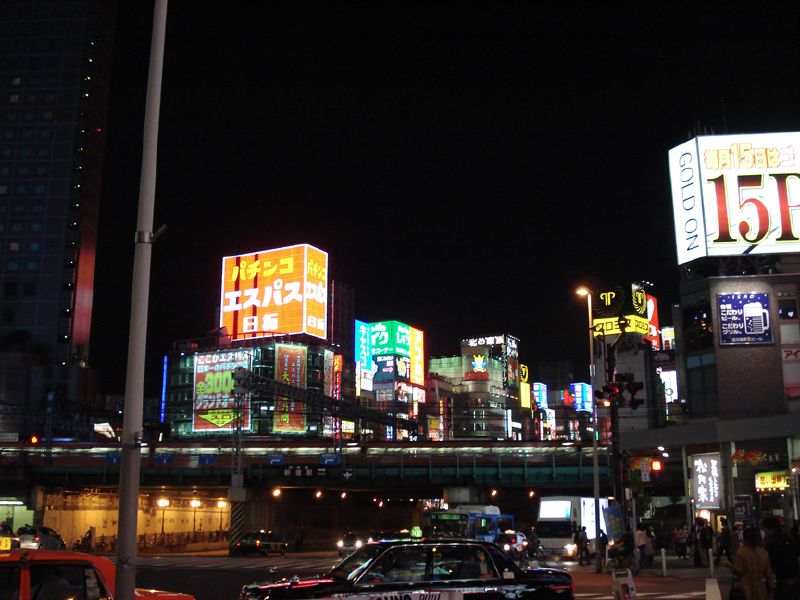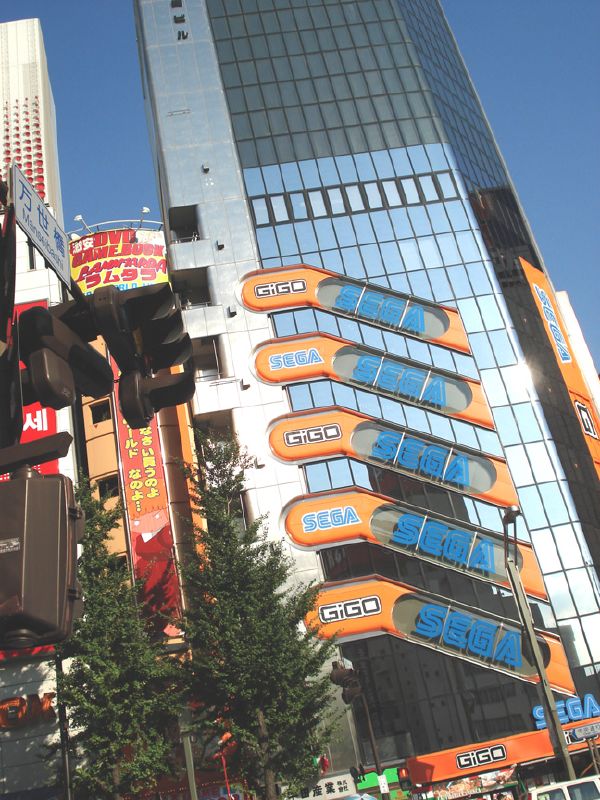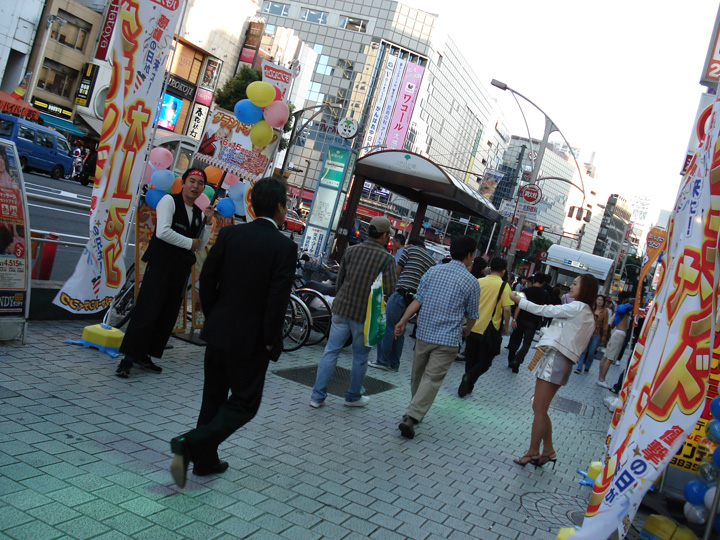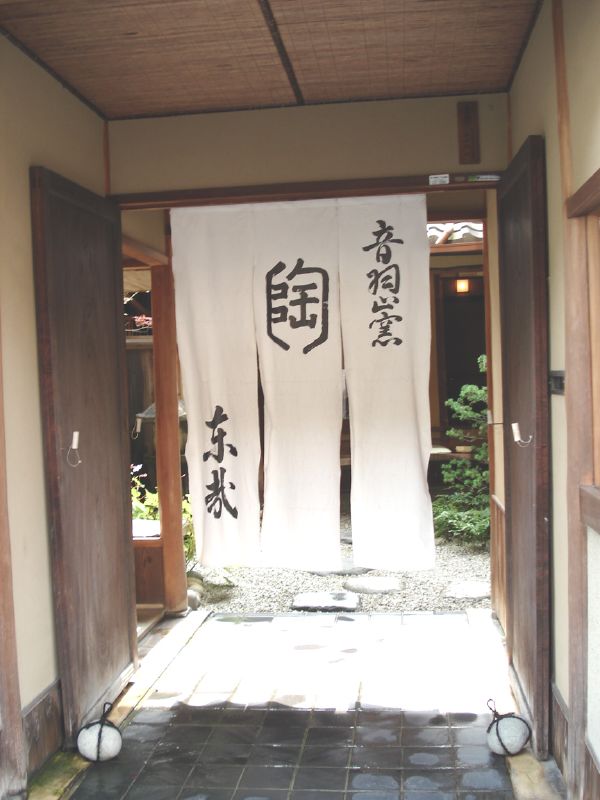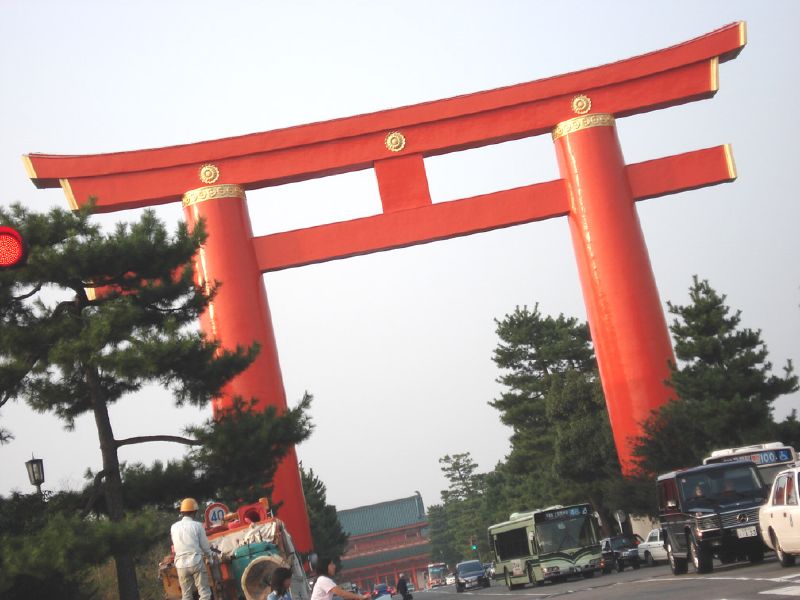We landed in Caracas in January of 2005 and stayed for three weeks. I travel on business a few times a year, usually to Latin America, but this was my first trip to Venezuela and I was looking forward to it. Traveling on business presents me with a set of people to get to know and with whom I immediately have something in common: we have work to get done.
As anyone who travels knows, the natives of a place are usually ready and willing to show you their country. This group was no different, but I’ll get to that in a minute. I found the business culture in Venezuela really interesting.
We usually got started at 9 A.M. each morning and by 10:30 we were breaking for ‘un cafezito’. While my co-worker thought this a frivolous waste of time, I found it extremely civilized and a lot more effective than the moronic ‘team-building’ we regularly find ourselves subjected to at the home office.
Enjoying a "cafezito".
During these coffee breaks (there was another one between lunch and quitting time) therewas time to talk and exchange information about each other. Be prepared for what will seem very personal questions by North American standards. This is pretty common in Latin America and you are expected to ask the same questions of them.
Venezuelan people run the gamut of phenotypes. You have your natural blondes, but they are in the minority. This is a country of color. And since I insist there is more than just Black and White in the world I use this term. They are comfortable with people of colorand the immediate affinity they expressed toward me was not only because I am Latino and speak Spanish. It was also because of my brown skin and curly hair, something familiar. I was pleased to be in a place where everyone does not aspire to be blond (that gets really tiresome) and the standard of beauty is not taken from Vogue or Marie Claire.
Caracas is intensely urban and the ‘feel’ of the place reminded me of São Paulo or Miami. The malls, Centros Comerciales, are vertical skyscrapers, instead of the sprawling one story kind we’re accustomed to in the States. Sambil and San Ignacio are the two we became familiar with. When you enter a restaurant in one of these places you forget completely that you‘re in a mall. The elevation (more than 10 stories) is taken advantage of and there is al fresco terrace dining with incredible views over the city.
Caracas is also very cosmopolitan, so don’t expect to be stared at because you are a foreigner. There are world class Vietnamese, (European) Spanish, Italian and Portuguese restaurants here. Try the Paella, you won’t be disappointed! Venezuela has Italian and Portuguese populations numbering in the millions, so it is common to hear these languages spoken alongside Spanish.
I always chat up the cab drivers when I travel. They know everything there is to know about their city and they’re usually great ambassadors, wanting to show you the best of what it has to offer. Caraqueños are very friendly and if you speak even a little Spanish they will gladly spend time talking. If you are a native English speaker, trust me, once the word is out you will become everyone’s tutor. Nearly everyone seems to be in school studying English.
Nationality is an interesting subject in Venezuela. On any Sunday you can stroll through the Plaza Simon Bolivar and hear President Hugo Chavez haranguing for hours on end, courtesy of the loud speakers set up almost everywhere. He rails against the Colombians and the Americans and the list goes on.
On January 22nd there was a half day parade, complete with effigies of Condoleezza Rice and George Bush, slamming live salsa music and plenty of megaphone. This is the occasion of President Chavez’ coming to power and there was plenty of anti-American rhetoric to go around. Later that day people who realized we were Americans turned out to be very curious about the States. They plied us with questions and said how glad they were that we came to their beautiful country. If you are Colombian, now that is another matter. There is a lot of tension between these two countries and this is the subject of some pretty heated café talk on Sunday afternoons.
This is a beautiful country, despite the grinding poverty in the slums above and around Caracas. The northern limit of the city is defined by a mountain known as El Avila. Our hosts were anxious to show us the recreation facilities at the top and so we planned a trip up via Teleférico (cable car). Five of us easily fit into a car and we were off into the clouds. During the ride up (and down) there is a point at which you can’t see the city below or the peak you are rising toward. Clouds surround you and there are glimpses of the carpet of jungle below. It is a sight so sublime and beautiful and humbling these words fall far short of what I want to communicate.
At the top there is an extensive entertainment complex, with restaurants, gardens, even an ice skating rink. Go figure! La India, one of my favorite Salsa singers happened to be performing live that day. Venezuelans don’t miss an opportunity to dance and we all partied for a while with the rest of the crowd. The ride back down was just as hypnotic, especially when the car came out of the clouds into a brilliant tropical sun with Caracas waiting for us down below.
The same day we were driven to a colonial town east of Caracas called El Hatillo. I am NOT a shopper! But I couldn’t prove it that day when I saw all that El Hatillo has to offer. Woven grass baskets from the Amazon, pottery from Colombia, hammocks from Brazil, this place had it all. El Hatillo has been preserved from colonial times by ordinances that prohibit changing the exterior of the buildings, although every manner of business occupies the brightly painted shells. I strongly recommend getting to El Hatillo and El Avila if you do nothing else in Caracas. Believe it or not one of the biggest treats for me was running from one customer appointment to another, eating at outdoor stands on the way and moving around and among the people. This is the whole point of traveling for me.
Caracas is a big city, with all the problems of a big city, and third world to boot. But a healthy dose of common sense, an open mind and even a little Spanish will ensure a great time among these generous and big hearted people. ¡Viva Venezuela!

